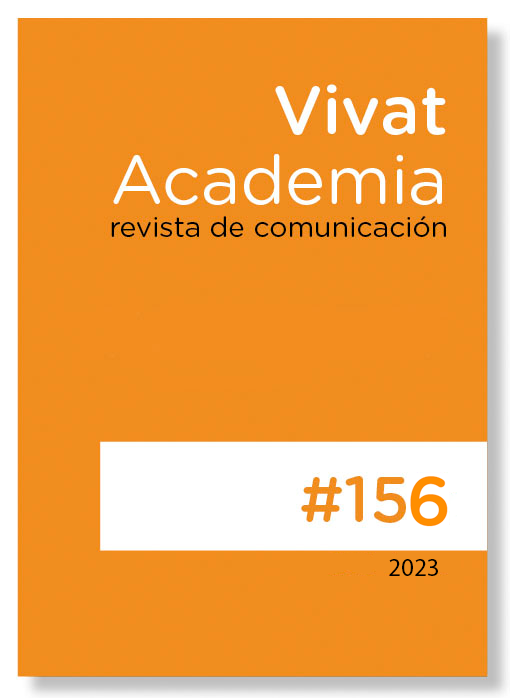Mental health and media coverage of COVID-19: investigation of the effects of television management, and efficient interrelation of anxiety through the dual technique: suffering VS pain, for the improvement of stress generated by the pandemic
Main Article Content
Abstract
Willingness to communicate (WTC) in a foreign language is linked to a range of negative and positive emotions. The present study investigated whether language enjoyment and anxiety are potential predictors of WTC. To this end, a group of 349 EFL undergraduate students (Female = 226, Male = 123) enrolled at public Saudi Arabian universities were surveyed. Multiple regression analyses revealed that foreign language enjoyment (FLE) was a predictor of WTC, while foreign language classroom anxiety (FLCA) did not seem to have a significant correlation with students’ WTC. These results suggest higher levels of enjoyment may have neutralized the effects of anxiety on WTC, indicating the salient role of positive emotions. Implications for foreign language teachers are discussed.
Downloads
Article Details

This work is licensed under a Creative Commons Attribution-NonCommercial-ShareAlike 4.0 International License.
References
Barrientos-Báez, A. (2022). COVID-19 y medios de comunicación: voces para un análisis crítico. Revista Latina de Comunicación Social, 80. https://acortar.link/LeQczR
Barrientos-Báez, A., González Suazo, L. y Caldevilla Domínguez, D. (2021). Nuevos escenarios educativos a partir del COVID-19 en la educación universitaria. Perspectivas de la comunicación, 14(2), 149-170.
Caldevilla-Domínguez, D., Barrientos-Báez, A. y Gorozhankina, T. (2023). Comunicación persuasiva en Turismo: del español al ruso. Revista Turismo & Desenvolvimento, 40, 203-217. https://doi.org/10.34624/RTD.V40I0.31651
Chadwick, A. (2013). The hybrid media system: Politics and power. University Press.
Doria, J. (2021). Transpersonal intelligence. 40 routes to a transreligious spirituality. Editorial Gaia.
García-Campayo J, and Demarzo, M. (2015). Mindfulness and compassion. The new revolution. Editorial Siglantana.
García-Campayo, J. (2017). Mindfulness y ciencia: De la tradición a la modernidad. Alianza Editorial.
García-Campayo, J. (2019). The practice of compassion. Editorial Siglantana.
García-Campayo, J. (2021). Emptiness and Non-Duality: Meditations for deconstructing the self. Kairos Publishing.
García-Campayo, J. and Demarzo M. (2018). What do we know about Mindfulness? Editorial Kairós.
Gardner, H. (2017). The structures of the mind. The theory of multiple intelligences. Editorial Paidós.
Huamani-Calloapaza, K. E. (2022). Redes sociales virtuales y la salud mental en tiempos de COVID-19: una revisión de literatura. LATAM Revista Latinoamericana de Ciencias Sociales y Humanidades, 3(2).
Innerarity, D. (2020). Pandemocracia: una filosofía de la crisis del coronavirus. Galaxia Gutenberg.
Kabat-Zinn, J. (2009). Full attention in everyday life: How to discover the keys to mindfulness / Wherever you go, there you are. Ediciones Paidós Ibérica.
Kabat-Zinn, J. (2016). The healing power of mindfulness: a new way of being. Editorial Kairós. Marcos, N. (2022). How we lived television in 2021. El País.
https://elpais.com/television/2022-03-04/como-vimos-la-television-en-2021
Neira, E. (2020). Streaming wars, The new television. Cúpula, Planeta.
Quian, A. (2023). (Des)infodemia: lecciones de la crisis de la COVID-19. Revista De Ciencias De La Comunicación E Información, 28, 1-23. https://doi.org/10.35742/rcci.2023.28.e274
Salovey, P. and Mayer, J. D. (1990). Emotional intelligence. Imagination, Cognition, and Personality.
Shamash, A. (2015). Beat stress with mindfulness. Editorial Espasa books.
Vargas J. (2022). Neurocomunicación consciente transpersonal y mindfulness. En M. Abanades Sánchez (Ed.), El profesional del siglo XXI: herramientas de comunicación y aprendizaje para el éxito laboral (59-94). Aula Magna Proyecto Clave McGraw Hill.
Vargas, J. (2019a). Black Friday and the reptilian brain. El publicista magazine. https://www.elpublicista.es/articulos/black-friday-cerebro-reptiliano
Vargas, J. (2019b). Storytelling Mindfulness: storytelling program for meditations. https://acortar.link/ssuDWb
Vargas, J. (2020). Storytelling Mindfulness: Storytelling Program for Meditations. IntechOpen. https://www.intechopen.com/chapters/67587
Vargas, J. and Sacaluga, I (2022). Conscious visual neurocommunication: deliberate and potential management of the gaze as a persuasive non-verbal argument to win and convince. Revista BNJM. http://revistas.bnjm.cu/index.php/BAI/article/view/453
Vázquez-Chas, L. (2023). Las redes sociales online como amortiguadoras de la soledad durante el confinamiento. Revista de Comunicación de la SEECI, 56, 249-264. https://doi.org/10.15198/seeci.2023.56.e828
Wolf, M. (2001). Los efectos sociales de los media. Editorial Paidós.
Artículos relacionados
Lee, Y., Jeon, Y. J., Kang, S., Shin, J. I., Jung, Y-Ch. Y. y Jung, S. J. (2022). Social media use and mental health during the COVID-19 pandemic in young adults: a meta- analysis of 14 cross-sectional studies. BMC Public Health, 22. https://doi.org/10.1186/s12889-022-13409-0
Neill, R. D., Blair, C., Best, P., McGlinchey, E., Armour, C. (2023). Media consumption and mental health during COVID-19 lockdown: a UK cross-sectional study across England, Wales, Scotland and Northern Ireland. J Public Health, 31(3), 435-443. http://doi.org/10.1007/s10389-021-01506-0
Vargas Delgado, J. J. y Sacaluga Rodríguez, I. (2022). Conscious communication and mental health: dual technique: suffering vs pain, for the improvement of stress. VISUAL REVIEW. International Visual Culture Review, 11(3), 1-9. https://doi.org/10.37467/revvisual.v9.3681





